Gabriele Castellano
Scheduling Inference Workloads on Distributed Edge Clusters with Reinforcement Learning
Jan 31, 2023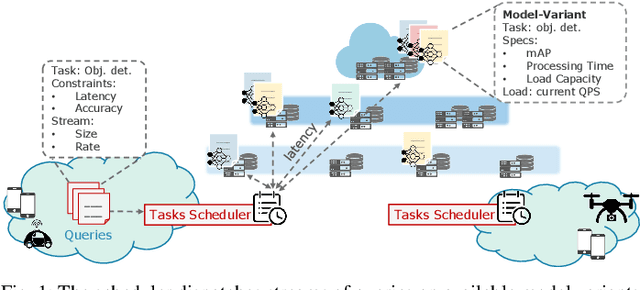
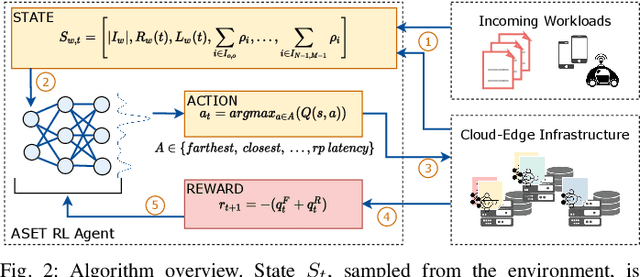
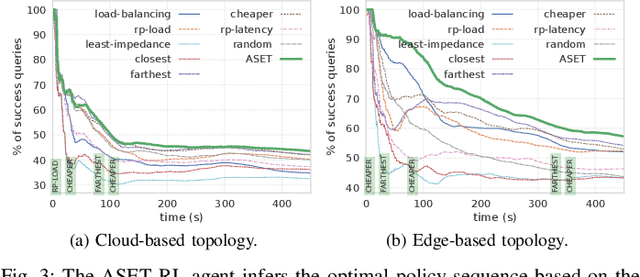
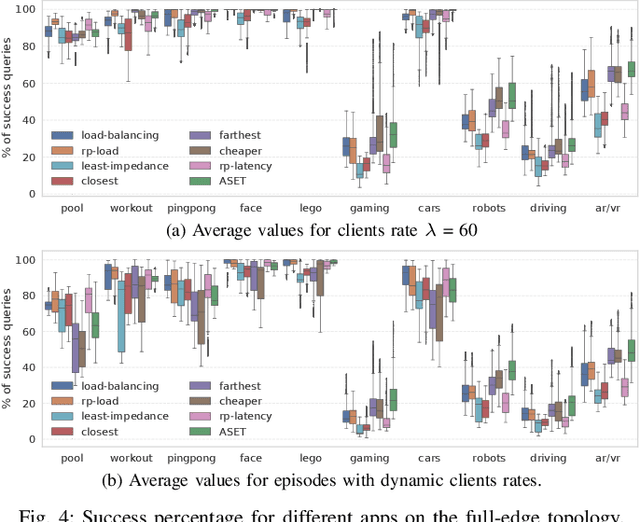
Abstract:Many real-time applications (e.g., Augmented/Virtual Reality, cognitive assistance) rely on Deep Neural Networks (DNNs) to process inference tasks. Edge computing is considered a key infrastructure to deploy such applications, as moving computation close to the data sources enables us to meet stringent latency and throughput requirements. However, the constrained nature of edge networks poses several additional challenges to the management of inference workloads: edge clusters can not provide unlimited processing power to DNN models, and often a trade-off between network and processing time should be considered when it comes to end-to-end delay requirements. In this paper, we focus on the problem of scheduling inference queries on DNN models in edge networks at short timescales (i.e., few milliseconds). By means of simulations, we analyze several policies in the realistic network settings and workloads of a large ISP, highlighting the need for a dynamic scheduling policy that can adapt to network conditions and workloads. We therefore design ASET, a Reinforcement Learning based scheduling algorithm able to adapt its decisions according to the system conditions. Our results show that ASET effectively provides the best performance compared to static policies when scheduling over a distributed pool of edge resources.
System Log Parsing: A Survey
Dec 29, 2022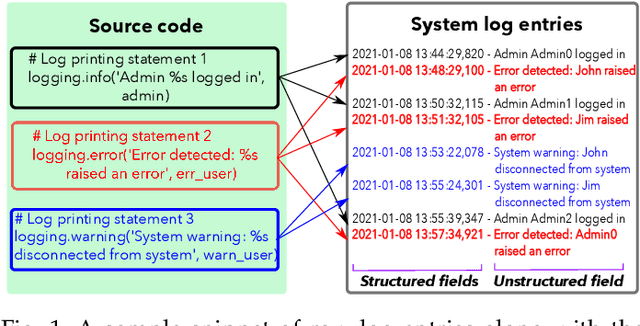
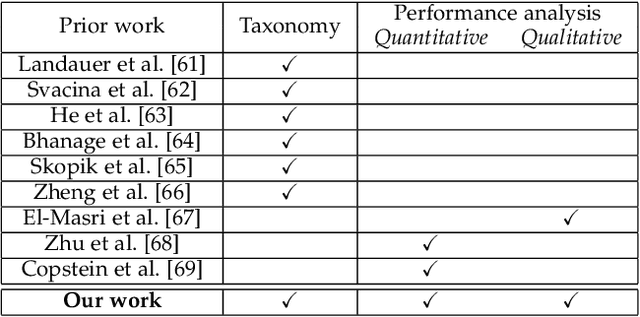
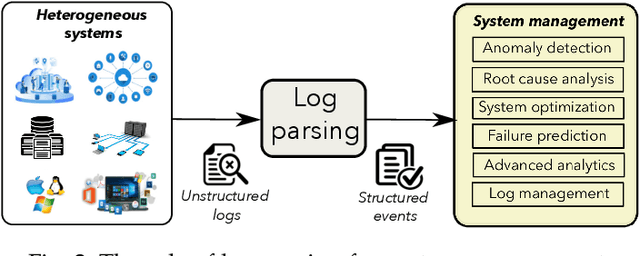
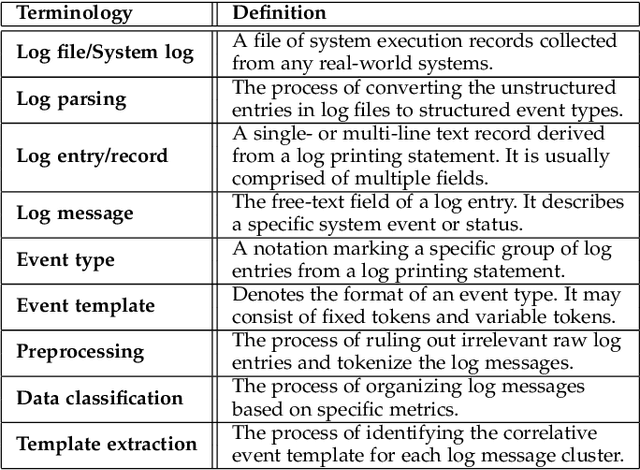
Abstract:Modern information and communication systems have become increasingly challenging to manage. The ubiquitous system logs contain plentiful information and are thus widely exploited as an alternative source for system management. As log files usually encompass large amounts of raw data, manually analyzing them is laborious and error-prone. Consequently, many research endeavors have been devoted to automatic log analysis. However, these works typically expect structured input and struggle with the heterogeneous nature of raw system logs. Log parsing closes this gap by converting the unstructured system logs to structured records. Many parsers were proposed during the last decades to accommodate various log analysis applications. However, due to the ample solution space and lack of systematic evaluation, it is not easy for practitioners to find ready-made solutions that fit their needs. This paper aims to provide a comprehensive survey on log parsing. We begin with an exhaustive taxonomy of existing log parsers. Then we empirically analyze the critical performance and operational features for 17 open-source solutions both quantitatively and qualitatively, and whenever applicable discuss the merits of alternative approaches. We also elaborate on future challenges and discuss the relevant research directions. We envision this survey as a helpful resource for system administrators and domain experts to choose the most desirable open-source solution or implement new ones based on application-specific requirements.
 Add to Chrome
Add to Chrome Add to Firefox
Add to Firefox Add to Edge
Add to Edge